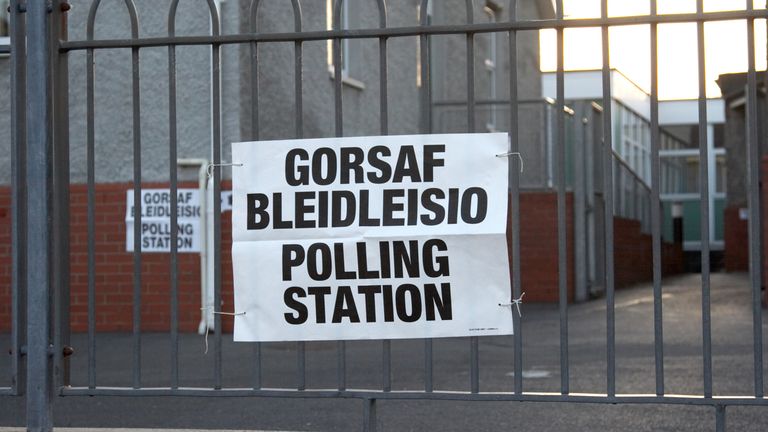Sixteen and 17-year-olds will be able to vote in next general election

Sixteen and 17 year olds will be able to vote in all UK elections in the biggest reform to the electoral system since 1969.
The government said it will give young people the right to vote in the next general election, something Labour promised in its manifesto last summer.
They can already vote in Senedd elections in Wales and Holyrood elections in Scotland, but this will mean all 16 and 17 year olds across all four UK nations can vote in local, regional and general elections.
Politics latest: Starmer facing criticism for suspending rebel MPs
Up to 9.5 million more people will now be able to vote, the IPPR thinktank said. The latest figures show 48,208,507 people are registered to vote.
The last time the voting age was changed was in 1969 when it was reduced from 21 to 18.
The government has said the change will "boost democratic engagement in a changing world, and help to restore trust in UK democracy".

Deputy Prime Minister Angela Rayner said: "For too long public trust in our democracy has been damaged and faith in our institutions has been allowed to decline.
"We are taking action to break down barriers to participation that will ensure more people have the opportunity to engage in UK democracy, supporting our Plan for Change, and delivering on our manifesto commitment to give 16 year olds the right to vote.
"We cannot take our democracy for granted, and by protecting our elections from abuse and boosting participation we will strengthen the foundations of our society for the future."
Conservative shadow communities minister Paul Holmes accused Labour of having "rushed" the announcement out "in an attempt to avoid parliamentary scrutiny and without consultation", calling it a "confusing message to young people".
He said it is a "brazen attempt" by a party whose "unpopularity is scaring them into making major constitutional changes without consultation".
The Tory added: "16-year-olds will be able to vote in an election but not stand as candidates, and they will be able to vote but not permitted to buy a lottery ticket, consume alcohol, marry, or go to war.
"This is a hopelessly confusing policy from Labour, who appear uncertain themselves about what they want young people to be allowed to do."
Read more:New rules may stop Elon Musk making unlimited donations to Reform
Half of the public were opposed to giving 16 and 17 year olds the vote when Labour suggested it ahead of last year's election, polling by More in Common found in May 2024.
A total of 47% of those polled of all ages were opposed, while 28% supported the change.
The older people were, the more opposed they were, with just 10% of 75-year-olds and over strongly or 'somewhat' supportive.
Gen Z (aged 18-26) were the most supportive, with 49% strongly or somewhat supportive.
But the polling showed people were sceptical about Labour's motivations for lowering the voting age, with the majority of voters from all parties thinking Labour was doing it to benefit them in elections.
The polling also found most people, including Gen Z, did not feel mature enough to be able to vote until they were 18.
Bank cards allowed as voter ID
As part of the strategy, voter ID will also be extended to include UK-issued bank cards.
Mr Holmes raised concerns using bank cards for ID will "undermine the security of the ballot box".
When other IDs that are already accepted, such as the veteran card and UK driving licences, become digitised, they will also be accepted in that form.
A digital Voter Authority Certificate will also be created to ensure electoral registration officers, who maintain registers of electors and absent voters, will be able to accept digital forms of ID.
Close loopholes for foreign donors
In an effort to boost transparency and accountability in politics, the government said it will close loopholes allowing foreign donors via "shell companies" to influence UK political parties.
New requirements will be introduced so unincorporated associations will have to carry out checks on donations over £500 to tackle foreign interference.
The Electoral Commission will also be given new powers to enforce heavier fines of up to £500,000 on those who breach political finance rules, and enable tougher sentences for those who abuse election campaigners.
Sky News





